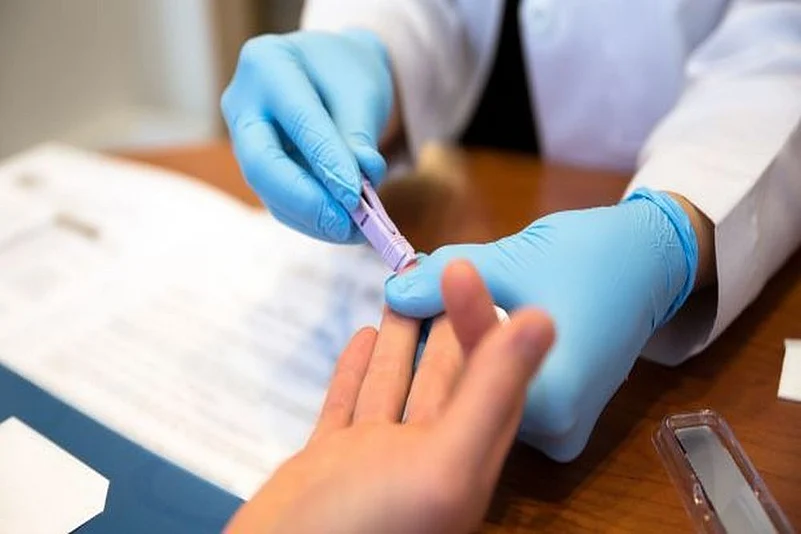A 23-year-old woman in Virudhunagar district of Tamil Nadu has tested positive for HIV after having a blood transfusion at Sattur government hospital early in December.
According to a report by The News Minute, the blood bank staff allegedly failed to properly screen the HIV positive blood sample, which was later given to a pregnant woman.
The report added that the donor was unaware he was HIV-positive. He had donated the blood on November 30, and it was transfused on December 3.
"The lab technician has been suspended. We have launched a probe to trace the donated blood," the state health department said on Wednesday.
“It was the duty of the counsellor at the ICTC [Integrated Counselling and Testing Centre] to trace the man and inform him,” said Joint Director of Health Services (Virudhunagar) R Manoharan.
“The Health Secretary has promised to take it up with the Government. Meanwhile, we have offered the job of a driver at Government hospital to the woman’s husband,” he added.
The government in a statement said that they have offered financial compensation and jobs for the woman and her husband but they want help for private treatment after the negligence.
Meanwhile, the woman is being counseled and has been put on antiretroviral to fight the virus from replicating. "The delivery of the woman's second child is expected in January. We are giving her proper councilling," the doctors said.
Following the incident, the District Medical Deputy Director Manoharan has ordered a re-test of all blood samples collected and stored in 10 government blood banks and four private blood banks.
What is HIV? How does it spread?
The human immunodeficiency virus (or HIV) causes acquired immunodeficiency syndrome or AIDS. The virus is usually transmitted through sexual intercourse, infected blood and from an infected mother to the baby in her womb or through breastfeeding.
The virus attacks the body’s immune system and causes people to succumb to secondary infections. HIV is primarily transmitted through sexual contact or needle sharing.
According to the World Health Organisation, in 2017, only 59 per cent of the 36.9 million people living with HIV across the world were receiving the anti-retroviral therapy, which suppresses the spread and growth of the virus in a person's body.


























